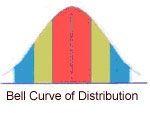
Nothing in life is free. You pay for everything, and the bottom-line medium of exchange is energy. Brain energy! Part of growing up involves deciding the price you are willing to pay.
—Arlene R. Taylor, PhD
Every human brain develops uniquely. Because of this no two brains are ever identical in structure, function, or perception—not even brains of identical twins! This understanding has been immensely helpful in allowing me to avoid meaningless argument and foolish controversy. Much of the time arguments simply involve perception differences between two brains, although some people believe that if they talk louder, faster, and longer, somehow that might force the other person’s brain to perceive the information in the same way. In the main I have given up all expectations for another brain to understanding mine completely (I don’t even understand it completely), and vice versa.
Learning about brain function gives you the option to apply the knowledge you gained on a daily basis. No doubt you can figure out many practical applications on your own, and you will need to do just that in order to live your life by design, expend your energy efficiently, and thrive. Because it is often easier to start from something than from nothing, and in response to numerous requests, I have prepared a collection of practical application summaries. My goal is to share information that will stimulate thinking and observation, trigger increased awareness at an individual level, and provide another way to view behaviors. Use these summaries as a springboard for your own practical applications and have fun in the process!
In preparing these summaries, I have relied heavily on brain function research, a plethora of studies, collaboration with other brain researchers, and discussions with experts in a variety of genres. Nevertheless, the summaries represent my own brain’s perception. There will be some who do not agree with my opinions. In those cases I suggest the individuals study the research for themselves and come to their own conclusions.

Typically, conclusions from research projects and studies are presented in the form of generalizations that apply to nearly 70% of the population (to the first standard deviation on either side of the mean). There are always exceptions based on individuality. No two brains are ever identical in function, structure, or perception—not even those of identical twins.
If some of your personal characteristics don’t match a specific generalization, it doesn’t invalidate the research findings. It does exemplify individual uniqueness. Avoid discounting first-impression mismatches too quickly. Perhaps you haven’t had the opportunity to hone a specific skill, or your personal past experiences have impacted you in unusual ways.
I encourage people to learn all they can about brain function and to apply the knowledge they gain on a daily basis. Because it is often easier to start from something than from nothing, I have prepared these practical application summaries. My goal is to stimulate thinking and observation, trigger increased awareness at an individual level, jumpstart applications for everyday living, and provide options for behaviors. Although I have relied heavily on brain function research, a plethora of studies, and discussions with brain researchers and other experts, the summaries represent my brain’s current understanding of brain function.